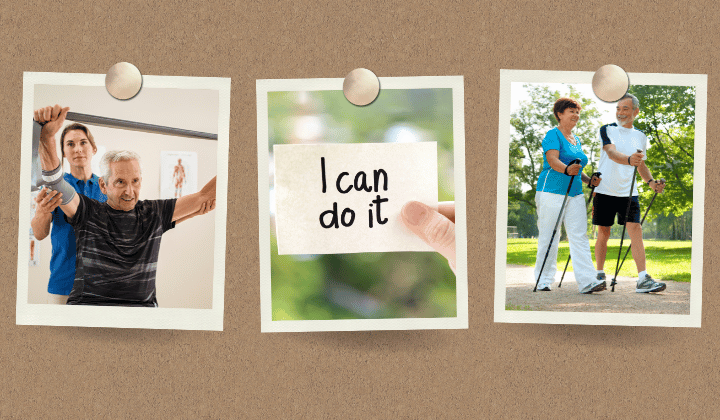Exercise helps to prevent falls

‘Natural killer’ cells could halt Parkinson’s
6th April 2021
Learn more about navigating the Aged Care system
6th April 2021Exercise helps to prevent falls
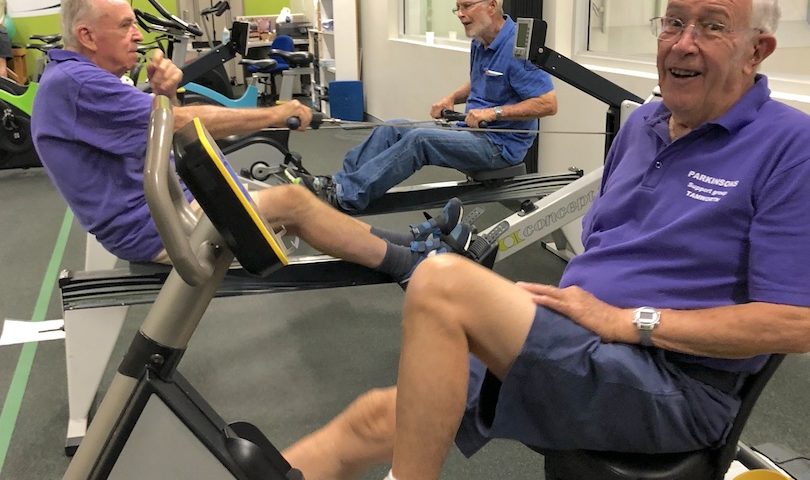
Exercise helps to prevent falls
Exercise is a proven way to prevent falls by strengthening the muscles that keep us upright and improving our balance.
For the greatest benefit try a combination of exercise types – aerobic, flexibility, coordination, and strength. This combination can be found in activities like riding a bike, climbing stairs, yoga, or tai chi.
Following are some simple exercises that can be done at home to help reduce the risk of falls. Do them any time and at multiple times throughout the day. This will enable you to build up your capacity and strength slowly and safely.
Before starting any new fitness program, see your doctor to make sure it’s safe for you.
The best way to ensure you’re exercising safely is to ask your doctor to refer you to a physical therapist or ask a personal trainer to walk you through your routine.
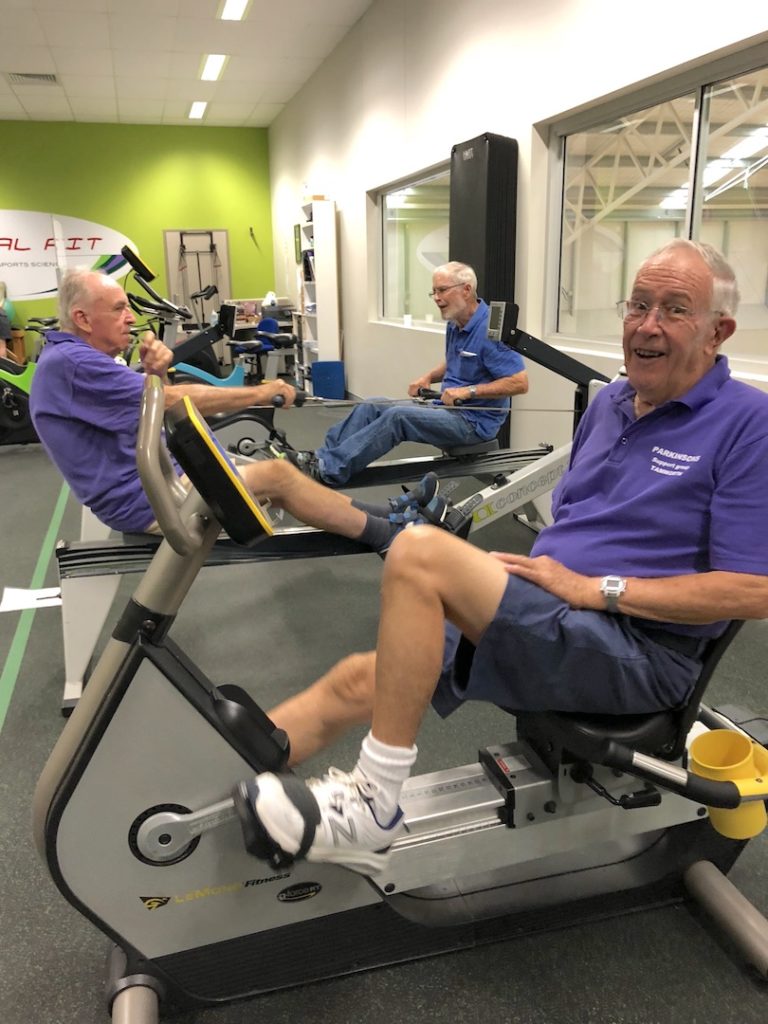
Helpful hints for exercise:
- Move slowly
- Stop if you feel faint or experience sharp pains
- Hold on to a strong support as you exercise – such as a sturdy chair or bench.
- Stand tall and breathe deeply to improve your posture.
Balance Exercises
Single Leg Balance
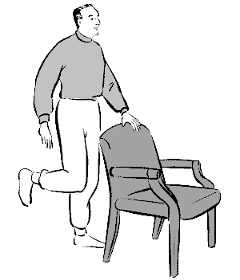
- Stand near a chair or stable object. Hold it with both hands.
- When steady take one hand off, lift one leg, and hold that position for 10 seconds.
- If still steady take your other hand off and hold that position. Build up to holding the position hands-free for 45 seconds.
- Repeat with your other leg.
Tandem Balance
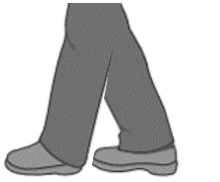
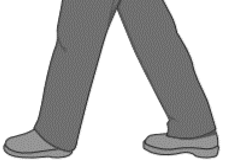
- Stand near a stable object and hold on to it.
- Put one foot directly in front of the other. Lift one hand and try to hold that position for 10 seconds.
- If stable, lift the other hand and hold that position for 10 seconds. Gradually build up to holding 30 seconds.
- Repeat with other foot in front.
If having one foot directly in front of the other is too difficult, try taking a big step forward. Try to not hold onto anything and hold that position for one minute.
When you improve with this exercise, try with one foot directly in front of the other.
Marching on the spot
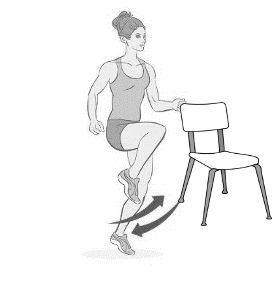
This exercise will help with foot clearance oversteps. It will assist you with getting in and out of a car or bus and help you feel stronger and less fatigued in climbing up stairs
Feel free to hold on to one or two sturdy supports – one in each hand if required.
Stand tall. Keep the body straight (avoid leaning to one side). Don’t worry if your knee doesn’t lift to knee height, just lift as high as you feel comfortable. It will improve over time!
Practice: Two sets of 5-10 steps, alternating between lifting the left and right legs.
Sideways Walking


This will help to improve your hip stability and help you keep your balance if you need to take a sideways step to avoid something.
Face a clear wall and steady yourself against it by placing your palms flat at shoulder level. Then take sideways steps parallel with the wall, sliding your hands along to maintain your stability.
Your steps don’t need to be large; small is fine too. Just remember to hold on and maintain a tall stance as you move.
As you improve, try to hold on to the wall with just your fingertips.
Practice: Two sets of 10 steps – either on the spot or up and back the length of the wall.
Heel raises
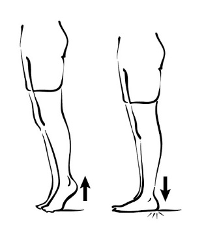
Stand up straight behind a chair, holding the back with both hands.
Position your feet hip-width apart. Lift up on your toes. Hold. Lower your heels to the floor. Repeat 10 times.
For more information on falls prevention phone the Parkinson’s NSW InfoLine: 1800 644 189
Sources:

